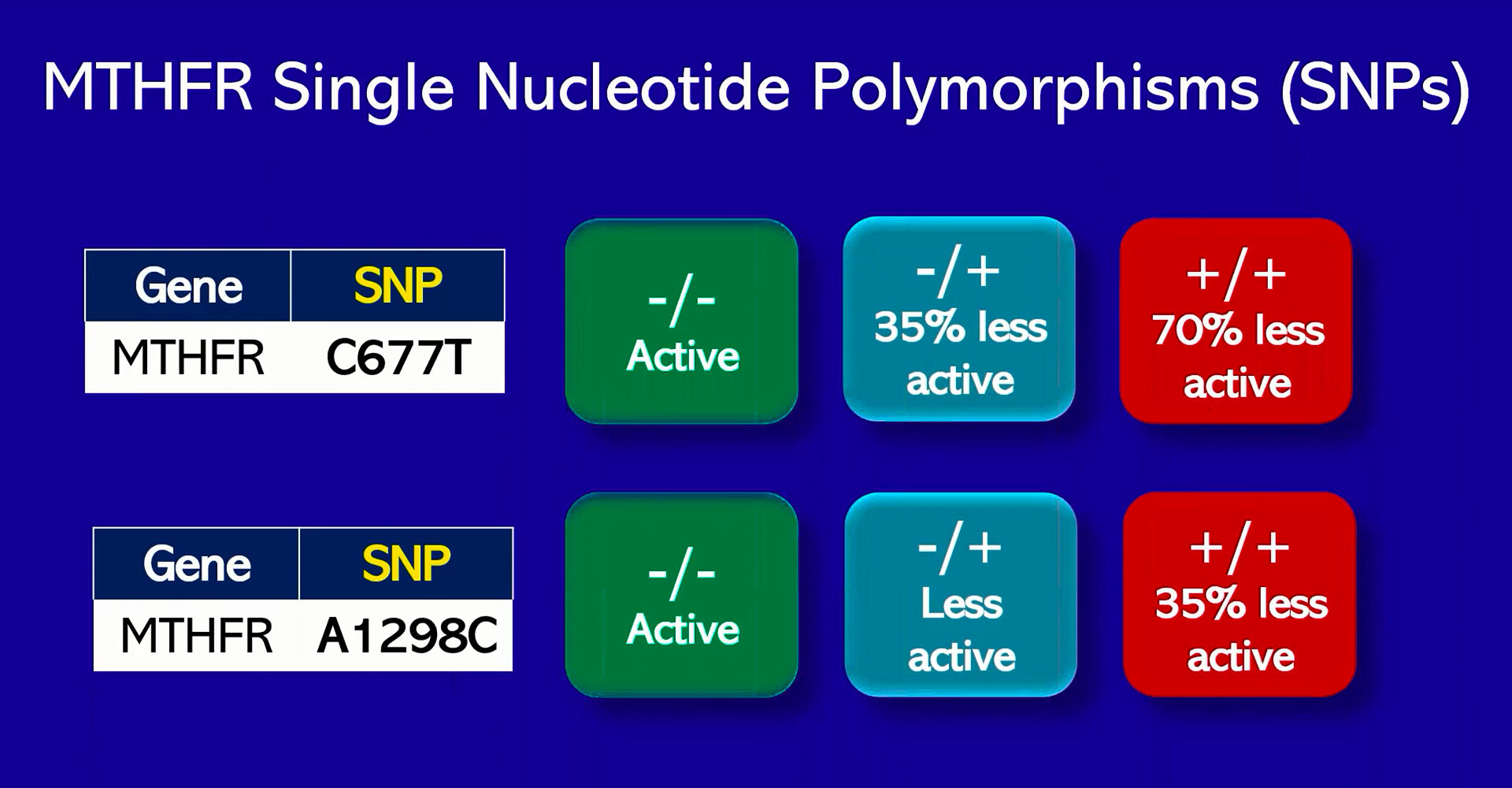The MTHFR Gene
MTHFR is short for methylenetetrahydrofolate reductase, which you will agree is a bit of a mouthful. It’s a gene involved in the production of an enzyme (a biological catalyst) by the same name: MethyleneTetraHydroFolate Reductase.
This enzyme helps us turn folate, found naturally in foods like leafy greens, avocado pear, asparagus, Brussels sprouts, broccoli, citrus fruit, banana, raspberries, and sunflower seeds, into methyl-folate. Methyl-folate is then used to make neurotransmitters (brain chemicals) such as dopamine, noradrenaline, and serotonin, as well as repairing DNA, and enabling biochemical processes to function, in particular methylation, an important biochemical process throughout the body.
If there’s a mutation in the MTHFR gene, then the enzyme is not as efficient at doing its job. If it’s not as efficient, this can be causing hidden health problems like mental health disorders such as depression and anxiety, lack of energy, and it puts you at risk for heart disease, stroke and cancer.
Mutations in a gene are called Single Nucleotide Polymorphisms or SNPs (pronounced ‘SNiPs’). The MTHFR gene has more than one variation. These are described by letters and numbers. One of the most significant mutations of the MTHFR gene is the C677T SNP. This describes cytosine substituted by thymine at position 677. Yes, it’s all vey technical, but don’t worry about it. You just want to know if you have this mutation or not. Another significant form of the MTHFR variation is A1298C, which describes the adenine base substituted by cytosine at position 1298.
 Another complexity you need to understand is that either of these variations can be heterozygous, meaning you inherited one mutated version, or homozygous, meaning you inherited two mutated versions. If you have no mutations, this is represented by -/-. If you have one mutation (heterozygous), this is represented as -/+. If you have inherited mutations from both parents (homozygous), this is represented by +/+.
Another complexity you need to understand is that either of these variations can be heterozygous, meaning you inherited one mutated version, or homozygous, meaning you inherited two mutated versions. If you have no mutations, this is represented by -/-. If you have one mutation (heterozygous), this is represented as -/+. If you have inherited mutations from both parents (homozygous), this is represented by +/+.
The diagram shows to what extent the gene (and its corresponding enzyme) is impaired.
You can test if you have an MTHFR SNP via a saliva sample (the one I do costs £130). If you do have at least one of these SNPs, then your need for folate will be higher than average. You will need to include more foods rich in folate or even supplement with methylated B vitamins.
